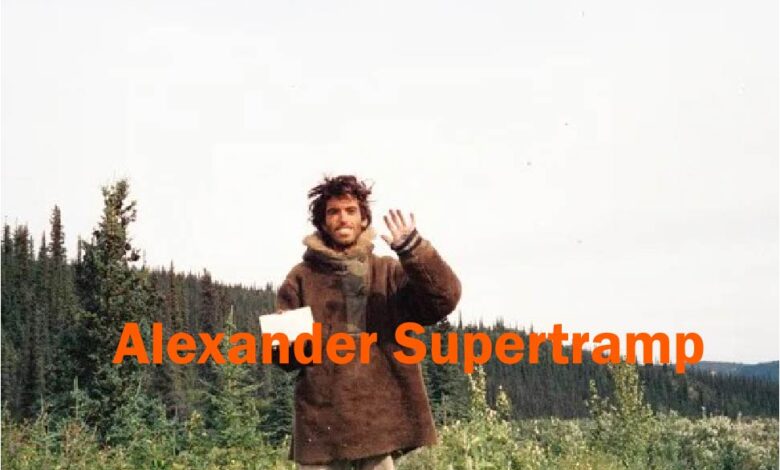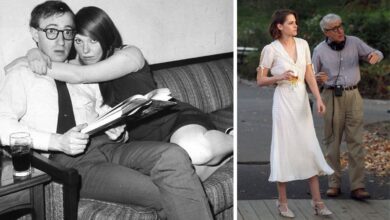Chris McCandless (Alexander Supertramp) Biography, Facts, and More

Christopher Johnson McCandless, famously known by his self-adopted moniker Alexander Supertramp, was a young adventurer whose journey captivated the world. His story became widely known after the publication of Jon Krakauer’s book Into the Wild and the subsequent 2007 film adaptation directed by Sean Penn. McCandless’ life was marked by his rejection of conventional society, a yearning for simplicity, and ultimately, a fatal quest for self-discovery in the Alaskan wilderness.
Biography
| Name | Christopher McCandless |
| Geburtsdatum | 12. Februar 1968 |
| Todesdatum | ca. 18. August 1992 |
| Geburtsort | El Segundo, Kalifornien, USA |
| Alter | 24 Jahre |
| Größe | 1,73 m |
| Gewicht | Ca. 67 kg (bei seinem Tod) |
| Familienstand | Ledig |
| Vater | Walter „Walt“ McCandless |
| Mutter | Wilhelmina „Billie“ Johnson McCandless |
| Geschwister | Carine McCandless (Schwester), Halbgeschwister |
| Leidenschaft | Abenteuer, Reisen, Natur |
| Buch | Into the Wild von Jon Krakauer |
| Vermögen | Unbekannt (kein bedeutendes Vermögen)s |
Early Life and Family Background
McCandless was born on 12th February 1968, in El Segundo, California, and he grew up in a prosperous family. His father, Walt McCandless, was a NASA scientist and his mother, Billie McCandless (Jena Malone), a secretary before joining her husband in business; at 16 she was pregnant out of wedlock. He had a younger sister, Carine, who he was very close to.
For all intents and purposes, a successful well-to-do family, his home life was rife with dysfunction that had taken a profound toll on him. Chris learned as a teenager that his father had another secret life, carrying on an affair with his first wife even while he was married to Chris and Carine’s mother. It only furthered Chris growing ill-feelings towards his parents and was one of the many reasons why he subsequently cut all ties with them.
Education and Early Adventures
McCandless was an intelligent overachiever. He did very well in school and in sports, especially cross country where he often led his team by running difficult rocky runs. It was right in line with his “to know what you are made of, face limit and fatigue” philosophy.
In 1990 he got a degree in history and anthropology from Emory University, but was less than impressed with the experience. He thought that formal education and material success were superficial and inconsequential when it came to leading a fulfilling life.
Following his graduation, Chris did something somewhat dramatic: he gave away everything he owned (which amounted to $24,000 in savings) and set off on a cross-country trip with just the backpack and only with a thirst for independence. He disappeared without saying goodbye to his family, except for writing a note to his sister promising he would never speak again with their parents.
Alexander Supertramp: The Persona and Journey
As Alexander Supertramp, McCandless wandered through much of the United States to end up in Mexico. He roamed the American West for two years, hitchhiking, surrendering to odd jobs and eating from the land. Owens traveled and talked with a variety of people that would later describe him as being idealistic, intelligent, but also stubborn and naïve to the dangers of wilderness survival.
He was seeking solace, or maybe personal difficulty alone, at the expense of even modern material comfort. Des Semian was constantly evicting tenants and ended up living in his car, which he abandoned during a flash flood that destroyed the vehicle. He hitched a ride, canoed down rivers and walked through river valleys from that point on.
He would later work odd jobs while on the road, including a long-term friendship with Wayne Westerberg in South Dakota (Westerberg also would say good things about him after his disappearance), but never anything that lasted.
Manager, Chris Deardon (being alone in the middle of Alaska somewhere away from society was his greatest dream) He thought that this isolation would eventually reveal to him the absolute truth of life. To help ready himself for this ascetic life, he read the writings of Henry David Thoreau and Jack London some folks who could persuade you that simple living was true godliness.
The Alaskan Adventure and Tragic End
By April 1992, McCandless had reached Alaska, where he went out into the wilderness with few supplies a rifle, some rice, books and modest camping equipment. He lived near an old bus on the Stampede Trail that he had found, whose interior he made ready for life; He nicknamed the bus “Magic Bus,” which it was for a while, but in the end it was his shelter, and then his coffin.
At first Chris fought to survive by hunting small animals and finding plants they could eat. But as time went on, he became more and more desperate. Then by July, McCandless recognized he was in serious trouble. In journal entries detailing his time adrift in the wilderness, he wrote of growing weaker and more despondent by the day. He had intended to hike out, but the Teklanika River, a little stream when he arrived, was running full from summer melt water, blocking his exit.
Hunger, the cardinal necessity that hungered most McCandless fell victim to it. Moose hunters discovered his emaciated body on September 6, 1992, inside the bus and weighing only 67 pounds. In his final note, he penned: “My life has been happy and thanks to the Lord. May God Bless All! Goodbye. A book of edible plants was located right next to him with one page dog-eared, and it happened to be a type that he had identified incorrectly as nontoxic.
Alexander Supertramp: Legacy and Debate
McCandless’ story has both affected thousands of people around the world and sparked intense controversy. To some, he is a hero a symbol of liberation, escapade, and the ultimate truth quest. For the disenfranchised with living in the modern world, his rejection of material things and structure holds precedence. But supporters note that his demise demonstrates the perils of hubris and lack of seasoning, as well as the virtues of living life according to no one’s other lights.
Some faulted McCandless for his poor planning, and scorned the boy who would walk unprepared into the wilderness with little more than a bag of rice and a .22 rifle. For them, McCandless did not die a peaceful martyr in the face of feared adulthood; he died unnecessarily.
Detractors point out that one should never forget the inherent hazards of nature and suggest that Chris was trying to escape from his own personal demons rather than make some grand philosophical statement.
Even so, McCandless’ tale remains fascinating to this day. However, the “Magic Bus”, as it was referred to in McCandless’ journey, would become an eerie site for both thrill-seekers and fans of his story until finally being airlifted away in 2020 after due risks a person undertook visiting.
The vanished world of McCandless’ life fires the imagination, romantic in its permanence, almost monastic in the austerity and purity it afforded his quest for happiness; but it also touches a universal nerve about freedom and how far we are prepared to push back that boundary of endurance.
The Bottom Line
Christopher McCandless, aka Alexander Supertramp, forever an illustration of someone seeking a significant existence outside the luxury chains of civilization. And nearly two decades after his untimely death, his life still attracts those who seek the wild and wish to live with intention. A cautionary tale to some, a romantic ideal to others, it is simply the desire of all humans to escape and find a home.
Those who allow themselves to be swallowed up by their own version of ‘Into the Wild’ cherish the books and the films.





